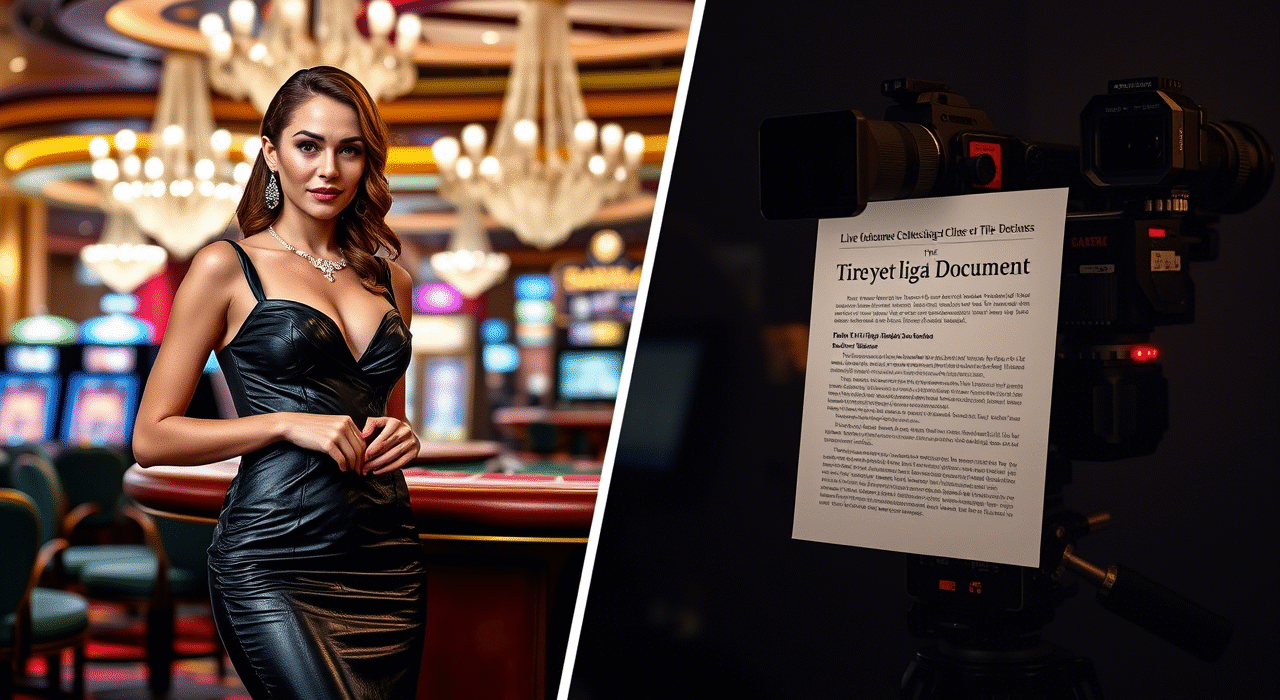Introduction: A Clash at the Core of iGaming
The iGaming industry thrives on visibility, innovation, and the ability to connect with a global audience. In recent years, one of the biggest growth vectors for online casinos has been streaming content—especially on platforms like Twitch, Kick, and YouTube Live. At the heart of this growth are partnerships between game developers and casino operators. But what happens when that relationship breaks down?
The recent lawsuit between Evolution, the live casino giant, and Wildz, a fast-rising operator under Rootz Ltd., has sent shockwaves through the industry. It’s more than just a contractual dispute—it strikes at the heart of content rights, brand control, affiliate streaming, and the future of live gaming as entertainment.
Let’s unpack the legal drama and its broader consequences.
The Lawsuit: What We Know So Far
Filed in early 2025 in the Swedish Commercial Court, Evolution’s legal action accuses Wildz of:
- Breach of streaming licensing agreements
- Unauthorized modification and distribution of live gaming feeds
- Failure to adhere to brand usage standards in affiliate broadcasts
Wildz, on the other hand, has countered that:
- They had no exclusive contractual restrictions on broadcasting Evolution content through streamers;
- Evolution failed to provide sufficient streaming guidelines, creating room for interpretation;
- The lawsuit is an attempt to stifle open affiliate marketing in the name of brand control.
This lawsuit is shaping up to be a landmark case—one that will define how much control developers can exert over how and where their content is streamed.
The Rise of Casino Streaming: Why It Matters
To understand why this lawsuit is so pivotal, we need to appreciate the rise of casino streamers. From small-time gamblers with Twitch channels to full-scale influencer marketing deals with Kick and Stake.com, casino streaming has become:
- A brand-building tool for operators like Wildz;
- A viral marketing funnel for new game titles;
- A community ecosystem for loyalty and retention.
Evolution, whose games are premium and high-margin, has always been protective of how their titles are showcased. However, the decentralized nature of streaming makes enforcement difficult.
Wildz’s Strategy: Open Affiliate Streaming
Unlike many traditional operators, Wildz leaned heavily into an open-streaming affiliate model:
- Allowing smaller influencers to stream content with basic opt-in agreements;
- Promoting gameplay from Evolution, Pragmatic Play, and others across non-traditional channels like Kick and Discord;
- Running cross-promotions without direct approval from content creators.
While this model earned Wildz substantial traction—especially in emerging markets—it also created risks. Evolution alleges that their brand image suffered due to low-quality or misleading streams.
Key Legal Questions at Play
This lawsuit presents the court with novel legal challenges in iGaming:
1. Is a live casino stream “content” or “a broadcast license”?
At the center of the case is a philosophical distinction:
Does an operator “own” the right to restream a live casino game, or is that right governed strictly by developer contracts?
This could lead to the creation of IP case law around what constitutes proprietary content in a streamed game.
2. Can developers restrict how games are presented on third-party platforms?
Evolution maintains the right to control:
- How their dealers are shown;
- Which streamers get access;
- What UI/UX modifications (e.g., overlays, chat integration) are allowed.
This resembles how game developers manage streamers in eSports—but the gambling context adds layers of compliance and age restrictions.
3. What’s the liability for affiliate marketers in the iGaming space?
Streamers have often operated in legal gray areas. If Wildz is found liable for third-party streaming violations, it could redefine how operators manage influencer content.
The Industry’s Reaction
The lawsuit has sparked polarized views:
⚖️ Operators’ Perspective
Many operators side with Wildz, arguing that:
- Streaming is free promotion—developers should encourage it, not restrict it;
- Evolution’s position is overly controlling and outdated;
- A loss for Wildz could set a precedent that hurts affiliate ecosystems.
🎮 Developers’ Perspective
Others quietly support Evolution, seeing it as a way to:
- Rein in off-brand, low-quality, or even fraudulent streaming;
- Ensure compliance with increasing global regulation;
- Protect dealer identities and studio IP from misuse.
Implications for Streaming Content
Regardless of the verdict, this lawsuit will have lasting effects:
✅ 1. Standardized Streaming Agreements
We can expect game developers to roll out formal streaming guidelines, similar to music and film industries. This could include:
- Pre-approved overlays;
- Whitelisting/blacklisting of streamers;
- Real-time stream licensing platforms.
✅ 2. More Legal Compliance for Affiliates
Operators may require streamers to sign:
- Disclosure agreements;
- Age gating systems;
- Anti-fraud commitments;
- KYC-lite background checks.
The days of anonymous, rogue casino streaming may be numbered.
✅ 3. Platform-Level Restrictions
Platforms like Kick and Twitch could be pressured to:
- Monitor gambling streams more closely;
- Introduce automated compliance filters;
- Create gambling-specific streaming policies (as Twitch already attempted in 2023–2024).
✅ 4. Innovation in Stream-Ready Games
On the flip side, this may also push game developers to:
- Build stream-optimized UIs;
- Add viewer interaction mechanics (live polls, giveaways);
- Explore co-streaming rights and monetization APIs.
A Test Case for the Industry’s Maturity
In many ways, the Evolution-Wildz case is about more than just a commercial dispute. It’s a stress test for whether iGaming can mature into a professional, entertainment-grade content economy like eSports or traditional video games.
Will this industry:
- Embrace creator partnerships, or suffocate them?
- Encourage innovation, or enforce conformity?
- Balance compliance with creative freedom?
The court’s ruling—and the industry’s response—will set the tone for the rest of the decade.
Conclusion: A Watershed Moment
The Evolution-Wildz lawsuit is a watershed moment for the gambling industry. It’s not just about who’s right or wrong—it’s about who controls the future of iGaming content.
Whether you’re a casino streamer, an operator building your brand, or a developer protecting your IP, this case will impact how you do business.
As live dealer games continue to blur the lines between gambling and entertainment, this legal battle may be the first of many. The rules are being written in real time.
And the whole industry is watching.











